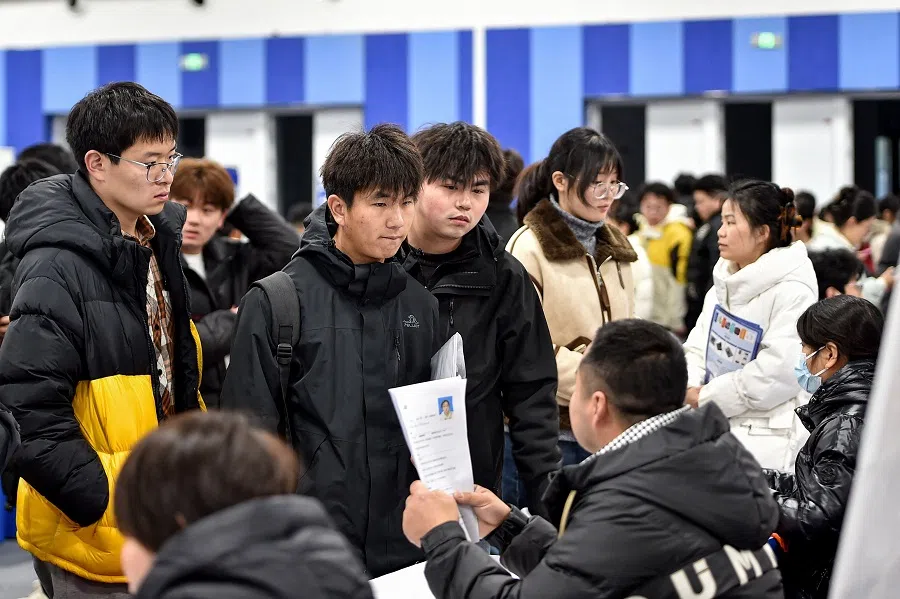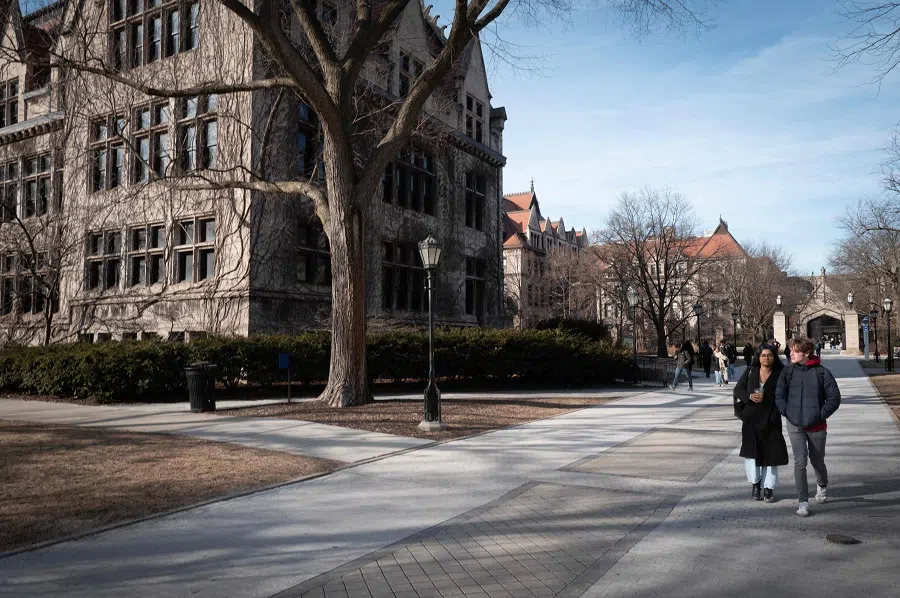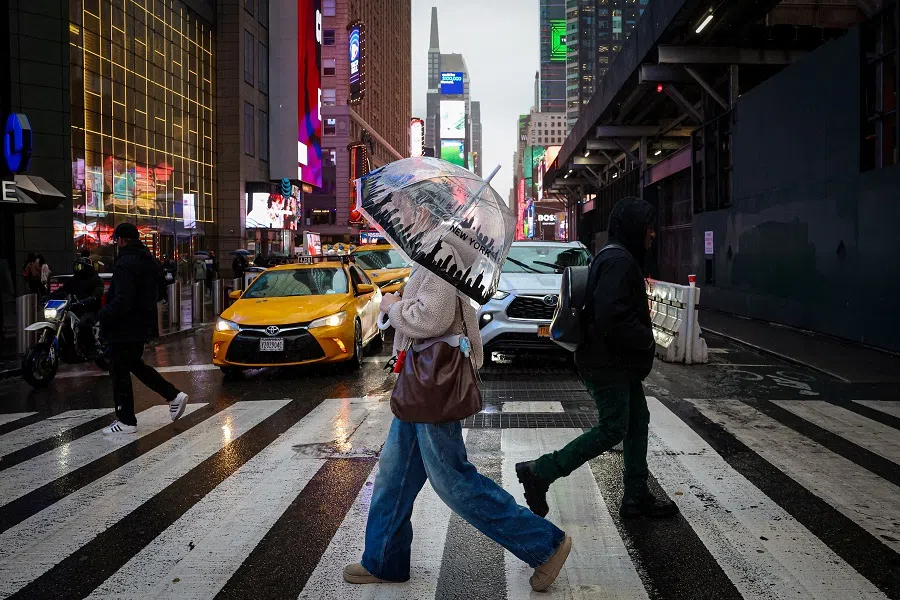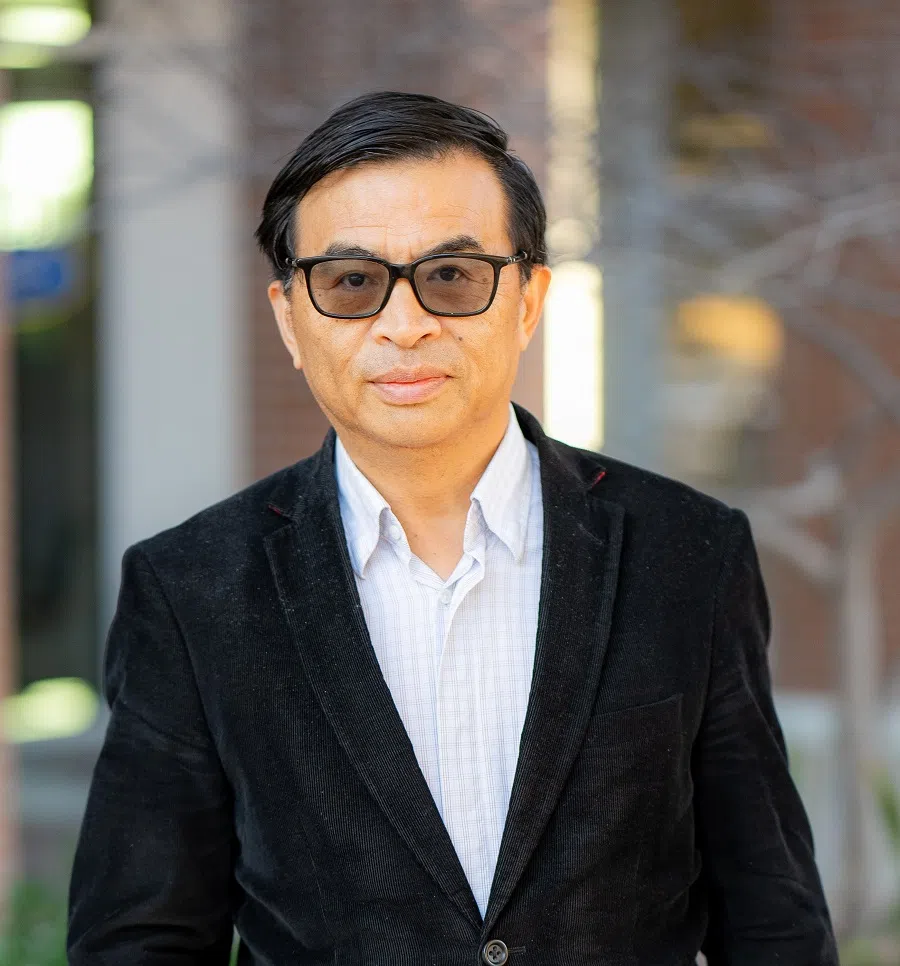Is the ‘American dream’ still alive for Chinese students under Trump?
How will Donald Trump’s second term as US president impact Chinese students studying — or hoping to study — in the US? Professor Yong Chen from University of California, Irvine, shares his views with Lianhe Zaobao news correspondent Lim Zhan Ting, and tells us why he thinks the US will remain a top destination for Chinese students.

In December 2024, several universities in the US sent emails to international students who were planning to travel abroad during the winter break, reminding them to return to the US by 20 January. Yong Chen, a professor of history and the associate dean of the School of Humanities at the University of California, Irvine, made it a point to urge students to pay attention to the email at that time.
20 January 2025 marked the day President Donald Trump took office, and these universities were concerned about whether Trump, who had implemented several restrictions on international students during his first term, would introduce even stricter entry bans — including targeting Chinese students, which could prevent them from returning to the US for their studies.
Chen, who graduated from Peking University in China in the 1980s before pursuing studies at Cornell University in the US, has witnessed the wave of Chinese students studying stateside over the past four decades. In an interview with Lianhe Zaobao, he said “many universities realise the importance of Chinese students, but Chinese students are also very vulnerable to trade tensions and geopolitical situations”.
... the decline in Chinese students studying in the US is not only due to US policies but also because of the high cost of studying there. — Professor Yong Chen, Associate Dean, School of Humanities, University of California, Irvine
Fear and uncertainty for Chinese students
More than a month after his inauguration, Trump has not yet introduced policies targeting international students, but Chen — as well as many international students — were still not completely at ease. Chen stated, “I was surprised that the worst worries and concerns have not come true, but let’s keep our fingers crossed.”
This sense of unease has long persisted among the Chinese foreign student community. During Trump’s first term, the US government tightened visa approvals for Chinese students under the pretext of national security, especially targeting universities allegedly closely linked to the Chinese military.
Many students who had attended these institutions had their visas revoked, or had their visa applications rejected. Although the Biden administration reversed several of Trump’s immigration bans upon taking office in 2021, some Chinese students were still prohibited from studying in the US.

As a result, the number of Chinese students in the US has decreased with each passing year. A report published last November by the US Department of State in collaboration with the Institute of International Education noted that there were 277,398 students from mainland China in the US for the 2023-2024 academic year, down from 289,526 in the 2022-2023 academic year and 290,086 in the 2021-2022 academic year. Last year, India surpassed China as the largest source of international students stateside, with China coming in at second.
Chen pointed out that the decline in Chinese students studying in the US is not only due to US policies but also because of the high cost of studying there. The Covid-19 pandemic was also another inhibiting factor as it increased travel restrictions for students and weakened parents’ financial ability to send their children abroad.
He added that Chinese students are now also leaning towards other countries, with a higher proportion opting to study in the UK. Furthermore, traditional study destinations such as Australia and Canada, as well as Asian countries like South Korea, Singapore and Malaysia, are popular as well.
Chinese students still see the US as the top choice for overseas studies
Although the number of Chinese students in the US has decreased, Chen believes that the US would still be the top destination for Chinese students when it comes to studying abroad, even in the Trump 2.0 era. He also does not think that this will change in the next few years.
A white paper released by Chinese education institution New Oriental International Education in 2023 indicated that the US is still the most preferred study destination for 31% of prospective undergraduate students, followed by the UK (29%). Other countries like Canada and Australia were ranked significantly lower. The top choices for prospective master’s and doctoral students were the UK and the US respectively.
US universities allow for greater academic freedom and provide an encouraging environment for innovation. The overall social and cultural ecosystem thus remains more attractive. — Chen

Why does the US remain more attractive than other countries to international students amid ongoing tensions in China-US relations?
Chen explained that students pursuing science and engineering degrees have relatively more job opportunities in the US, especially with the Optional Practical Training programme, which allows international students to work in the US for one year after graduation in a field related to their major. Those in STEM (science, technology, engineering, and mathematics) fields can stay for up to three years, providing ample time to gain work experience and boost their future careers.
He pointed out that many believe that for STEM fields, a doctoral education is the best in the US because of funding and opportunities.
He also believes that US universities allow for greater academic freedom and provide an encouraging environment for innovation. The overall social and cultural ecosystem thus remains more attractive.

In fact, while US policies toward Chinese international students are not exactly friendly, they do not affect everyone. Chen pointed out that the restrictions imposed by the US government so far have largely targeted graduate students rather than undergraduates, and have also focused on certain Chinese universities.
The American dream persists
While China has been a major source of international students for American universities for many years, increasing uncertainties in China-US relations in recent years have led many universities to more actively explore international student markets in other countries, such as India.
Chen predicted that while there will be fewer and fewer international students from China, he believes that they still harbour the “American dream”. The reality will just be more complex than before.
Reflecting on his own experience studying in the US, Chen concluded that the “American dream” some 20 years ago was much more straightforward — people just wanted better jobs and salaries and to live in an open and stable society. But today, China offers good jobs and salaries in a growing number of fields, attracting more international students to return home after graduation. The “American dream” may not necessarily involve staying in the US long-term; rather, receiving an education in the US could also be a goal in itself.
“The ‘American dream’ varies a lot, but the idea that this is… a most desirable place to work and live… will remain for quite some time. The American dream is still alive.” — Chen

Chen said, “The ‘American dream’ varies a lot, but the idea that this is… a most desirable place to work and live… will remain for quite some time. The American dream is still alive.”

Chen recently spoke in Singapore at the Tan Lark Sye Professorship in Chinese Language and Culture Public Lecture Series, discussing Chinese students in the US. The event was organised by NTU’s Centre for Chinese Language and Culture, the Association of Nanyang University Graduates, and Lianhe Zaobao.
This article was first published in Lianhe Zaobao as “学者:特朗普2.0虽带来变数 美国仍会是中国留学生首选”.



![[Video] George Yeo: America’s deep pain — and why China won’t colonise](https://cassette.sphdigital.com.sg/image/thinkchina/15083e45d96c12390bdea6af2daf19fd9fcd875aa44a0f92796f34e3dad561cc)
![[Big read] When the Arctic opens, what happens to Singapore?](https://cassette.sphdigital.com.sg/image/thinkchina/da65edebca34645c711c55e83e9877109b3c53847ebb1305573974651df1d13a)
